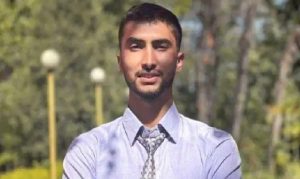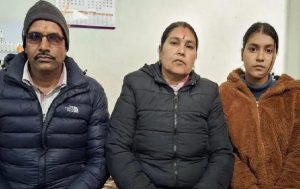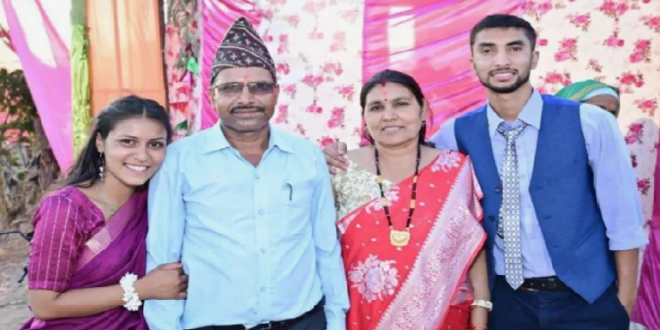18-01-2025
KATHMANDU: In a remote village in western Nepal, thousands of miles from Israel, Mahananda Joshi was sitting restlessly at home on Thursday, his phone in his hand.
The phone is never far from his hand now and never on silent. He is waiting for news of his son, Bipin Joshi, a 23-year-old Nepalese agriculture student who was kidnapped by Hamas and taken to Gaza.
 Any time the phone rings, Mahananda, a local schoolteacher, thinks it might bring news of Bipin, or even his deepest hope his son’s voice on the line.
Any time the phone rings, Mahananda, a local schoolteacher, thinks it might bring news of Bipin, or even his deepest hope his son’s voice on the line.
“Sadly, it is always someone else,” Mahananda said.
Bipin was one of dozens of foreign workers kidnapped alongside Israelis when Hamas attacked on 7 October 2023.
Twenty-four were subsequently released 23 from Thailand and one from the Philippines but Bipin and nine others remained.
It was never clear why.
The last time Bipin’s mother Padma spoke to him was 6 October, she said, the day before he was kidnapped.
He assured her he was eating well, and showed off the clothes he was wearing.
The next time the family saw him was on video footage taken from the Al-Shifa hospital in Gaza, shown to them by Israeli officials, who asked them to identify him.
It was the confirmation that he had been taken alive.
The media now understands that Bipin is believed to still be alive, but Nepal’s ambassador to Israel, Dhan Prasad Pandit, said he had “no concrete information” yet about Bipin’s condition or whereabouts.
Mahananda, Bipin’s mother Padma and 18-year-old sister Puspa live in a small white, one-storey home in the village of Bispuri Mahendranagar, close to the border with India.
 As of Thursday, they had not heard anything from officials, they said, only the headlines announcing a ceasefire agreement.
As of Thursday, they had not heard anything from officials, they said, only the headlines announcing a ceasefire agreement.
The news had given them all renewed hope.
“I feel like he will message me today or tomorrow saying mummy, I am free now and I will return home immediately,” Padma said but the Joshi family’s relief, if it comes, will not be that fast.
‘Everything could fall apart’
Along with the nine other foreign workers who remain hostages, Bipin is not expected to be released in the first phase of the ceasefire, which will prioritize the release of elderly men, women and children.
The fear for the family is that, while they wait, everything can change.
“Everything could fall apart,” Padma said, with tears in her eyes.
The family’s ordeal began on the day of the attack.
Bipin was one of several Nepalese students in Kibbutzim in southern Israel that day, and Mahananda, a teacher at a local school, got a call from one of them to say that Bipin had been kidnapped.
At that point, Mahananda did not know anything of Hamas’s attack nor the situation unfolding in Israel, and he struggled to make sense of what he was hearing.
He would later learn that 10 Nepalese students had been killed in the attack, and that one his son appeared to have been taken hostage.
That feeling of disconnection has persisted for 15 agonizing months, Mahananda and Padma said on Thursday.
Every hostage family’s pain has been great, but for some of those far away from Israel there has been an added sense of isolation.
“It has been a very lonely experience,” Mahananda said. (Int’l Monitoring Desk)
 Pressmediaofindia
Pressmediaofindia




